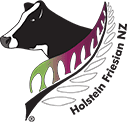Are you undertaking ET work on your herd this season?
Under the registration rules of Holstein Friesian NZ to register progeny from ET work, all progeny, both male and female, must be DNA parentage verified to both dam and sire.
To do this, both the donor dam and sire must be profiled first, including overseas dams and sires. If you own the dam or the dam is in New Zealand, two samples are taken from the donor dam before ET work commences – one for testing to gain a DNA profile of her, and the second as insurance should anything happen to the original sample or the dam.
When purchasing overseas embryos, confirm with the supplier the following information:
1. The dam and sire of the embryo both hold a DNA profile;
2. Which laboratory/service provider holds the DNA profile data for the dam and sire;
3. Which overseas laboratory can be used to verify the progeny to sire and dam.
On the sire side, take the time to check with your semen provider that any bull used for ET work has been profiled either in New Zealand or overseas. Profiling dams prior to ET work being undertaken will ensure that you are protecting your investment in your herd and ET programme.
If you are completing work through ABS, they take a sample from each donor dam prior to any ET work undertaken at their centre. This is a further back up for any breeder should it be required.
If your intention is to sell ET progeny in the future, make sure DNA parentage to dam and sire is completed when the progeny is born; don’t wait until a month out from your sale to carry out DNA parentage verification, as this may be too late to have animals officially registered with HFNZ prior to the sale. If animals are not registered prior to a sale they cannot be published in a sale catalogue as registered. They must say registration pending.
For further information please contact Sharon Goldsbury on 021 837 456 or s.goldsbury@nzhfa.org.nz.


Add a Comment
You must be logged in to post a comment